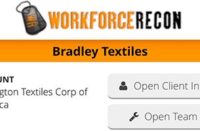I watched him as he sat visiting with a man I didn’t recognize. All kinds of people were walking by, but few noticed him, drinking coffee and conversing like some kind of business was on the edge of being agreed upon. I couldn’t help but wonder how one of the most wealthy sports celebrities in the world had managed, or unmanaged, to lose all his wealth while still a young man. All the talent in the world but nothing to show for it. The other man eventually stood up, shook the retired boxer’s hand, and paid the coffee tab for both of them. Sad.
Our industry of decorative concrete is full of amazing and talented artists who have taken our trade to a level I truly never thought I would see in my lifetime. Every issue of this magazine is proof of it. But.
I have been hesitant to write an article like this because I don’t want to be misunderstood by any of my peers. However, my concern is that many of our gifted artisans will fall prey to this market downturn for reasons that have nothing to do with their decorative talents. Most of the cutting-edge types have little interest in the business side of decorative concrete and this shortfall is proving to be costly. In a good economy like the one last seen, most could put off the business side and still make ends meet. I want to approach these concerns head on, and if anyone is offended, I apologize in advance.
Here are the two shortfalls, as I see them, that keep talented individuals from making money in today’s market.
No. 1: Lack of organization
Artists are free-spirited, creative, energetic, and broke most of the time. I have met many since my association with Concrete Decor, and I will tell you that they will not argue with this last statement. These individuals will create a masterpiece time and again but run out of gas on the way home. I’m not being mean here, just stating the facts.
Let me give a few examples of what I’m talking about when I say “lack of organization.” All are 100 percent true. Again, I’m not picking on anyone, just trying to make a point. Examples are as follows: One artisan traveled by plane to do a job and didn’t have the tools sent out to do it.
One forgot to order the materials to overlay a 6,000-square-foot floor that had a scheduled grand opening the next week.
One forgot to bring a tape measure to a scheduled bid with the homeowner.
One forgot to invoice a $12,000 job until the tax preparer caught it at years end. Amazing.
Being organized is something you are born with or must learn on your own. Heaven knows I have had my share of goof-ups, so I can pitch a piece of advice without feeling guilty: Even in a day of advanced software, Blackberries and Twitter, my recommendation is to use the old, reliable pad and pencil. If five minutes at the day’s end is spent writing out the game plan for tomorrow, most problems will fix themselves. Make a commitment to organize yourself today.
No. 2: Can’t say no
Doesn’t the word “yes” sound good? Think about it. None of us would be married if not for the word “yes.” Dad wouldn’t have let us drive for the first time without it. Meeting expectations is the biggest challenge within the decorative concrete industry, and many of us find saying no can turn into conflict. I completely understand this. The problem here is that occasionally, never saying no to customers, suppliers, fellow subcontractors and employees causes a severe hemorrhage in your cash flow.
I remember a job we had scheduled for months that consisted of a complex overlay, decorative cutting and stain. The general contractor was well managed and specialized in high-end custom homes and did a great job with them. Our company pushed away work to make sure his job could be completed to his schedule. Well, you guessed it – in the eleventh hour the general tried to call us off and reschedule for sometime in the near future. The reply from our company was that the work would be done in the week scheduled or there were no guarantees that we could do the work at all. He managed to fit us in as scheduled. If I would have conceded that late in the game, we would have lost two to three profitable days or spent money trying to find work for our crew.
The other problem with always saying yes is that your clients will depend on it, especially your commercial and residential builders. It may be no to overtime, no to a new technique or no to a compromise, but find a kind way to say no.
Final word
The economy of the past allowed for loose business practices with little repercussions. This is not the case anymore. Survival for small business in today’s market means 100 percent control and organization. Remember, your family and the families of your employees are counting on more than your artistic talents.















